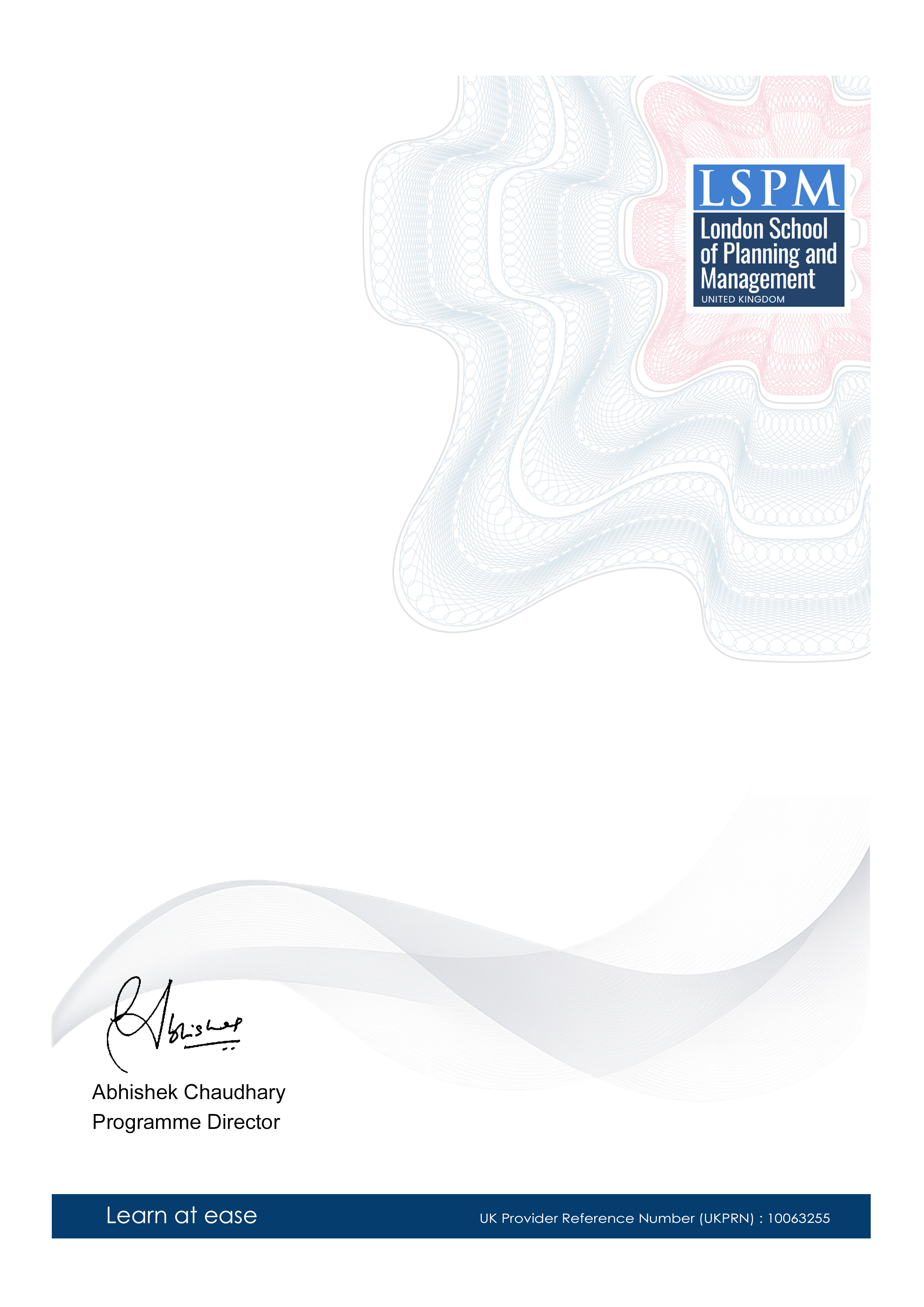Graduate Certificate in Reliability Engineering
-- viewing nowThe Graduate Certificate in Reliability Engineering is a comprehensive course designed to equip learners with the essential skills needed to excel in the field of reliability engineering. In today's world, reliability engineering has become increasingly important for various industries, including manufacturing, aerospace, automotive, and healthcare.
7,012+
Students enrolled
GBP £ 149
GBP £ 215
Save 44% with our special offer
About this course
100% online
Learn from anywhere
Shareable certificate
Add to your LinkedIn profile
2 months to complete
at 2-3 hours a week
Start anytime
No waiting period
Course details
Here are the essential units for a Graduate Certificate in Reliability Engineering:
• Reliability Engineering Fundamentals: This unit covers the basic concepts of reliability engineering, including reliability metrics, probability theory, and reliability modeling.
• Reliability Analysis and Prediction: This unit focuses on reliability analysis techniques, such as failure modes and effects analysis (FMEA), and reliability prediction methods, such as reliability block diagrams (RBD) and Markov models.
• Maintenance and Replacement Strategies: This unit covers various maintenance and replacement strategies, such as preventive maintenance, condition-based maintenance, and reliability-centered maintenance (RCM). It also discusses spare parts management and logistics.
• Fault Diagnosis and Prognostics: This unit introduces fault diagnosis techniques, such as signal processing and pattern recognition, and prognostics methods, such as physics-of-failure models and machine learning algorithms.
• Design for Reliability: This unit covers reliability-related design principles, such as reliability apportionment, redundancy, and fault tolerance, and design methodologies, such as design of experiments (DOE) and robust design.
• Risk Analysis and Management: This unit discusses risk analysis techniques, such as failure modes, effects, and criticality analysis (FMECA) and event tree analysis (ETA), and risk management strategies, such as reliability-based design optimization (RBDO) and safety-critical systems design.
• Data Analysis and Reliability Modeling: This unit covers statistical methods and data analysis techniques for reliability modeling and estimation, such as regression analysis, survival analysis, and Bayesian methods.
• Reliability Growth and Testing: This unit covers reliability growth models, such as Crow-AMSAA (NHPP) and Duane models, and
Career path
Entry requirements
- Basic understanding of the subject matter
- Proficiency in English language
- Computer and internet access
- Basic computer skills
- Dedication to complete the course
No prior formal qualifications required. Course designed for accessibility.
Course status
This course provides practical knowledge and skills for professional development. It is:
- Not accredited by a recognized body
- Not regulated by an authorized institution
- Complementary to formal qualifications
You'll receive a certificate of completion upon successfully finishing the course.
Why people choose us for their career
Loading reviews...
Frequently Asked Questions
Course fee
- 3-4 hours per week
- Early certificate delivery
- Open enrollment - start anytime
- 2-3 hours per week
- Regular certificate delivery
- Open enrollment - start anytime
- Full course access
- Digital certificate
- Course materials
Get course information
Earn a career certificate

